



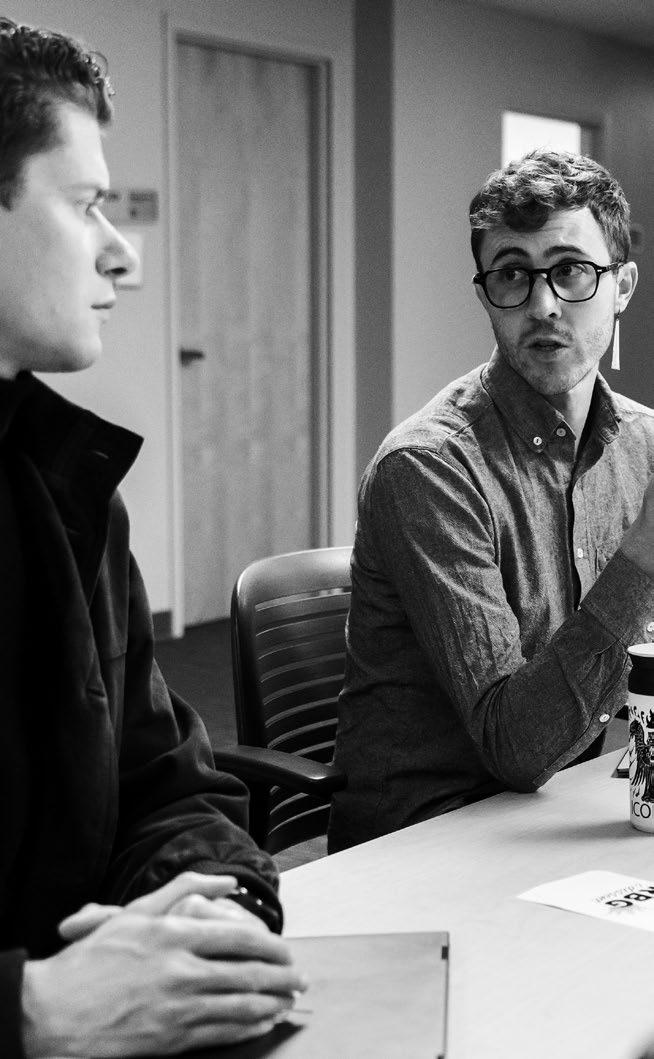






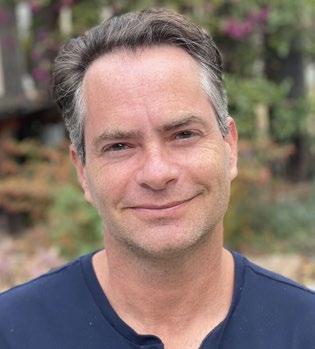 Faculty Co-Director, Clinical Program
Faculty Co-Director, Clinical Program
Faculty Co-Director, Clinical Program
Faculty Co-Director, Clinical Program
As the Berkeley Law Clinical Program steps into an era of expansion, we are deepening our commitment to our mission of advancing racial, economic, and social justice while strengthening our infrastructure. We are fortifying our roots to support the program’s planned growth and increased collaboration across rich subject matter areas in policy, legal services, and other client-facing social justice projects.

 Director,
Director, Clinical Program
Director,
Director, Clinical Program
Last year, 300 students enrolled in our six in-house and eight community-based clinics. Students testified in state legislatures, built community partnerships, and worked directly with diverse client groups while navigating ethical issues and beginning to explore and develop their professional identities as lawyers.

Recently, clinic students researched claims of race discrimination under California’s new Racial Justice Act; advanced environmental justice for California Native Nations; filed a petition with the United Nations on behalf of four imprisoned Vietnamese human rights activists; advised Central Valley entrepreneurs on intellectual property issues; helped abolish youth fines and fees in Arizona, Illinois, Montana, Texas, and Washington; assisted KALW Public Media with copyright issues related to a podcast produced by incarcerated people in California; passed a California bill that removes barriers from the criminal background check process for people applying to work at care facilities; and much, much more.
Currently, the demand for clinical education outpaces our supply: We have more students who want to enroll in clinics than slots available. This demonstrates students’ commitment to social justice, to developing the skills they need to be effective advocates, and to connecting theory to practice. Over the next four years, we plan remarkable growth for the Clinical Program with the addition of three new in-house clinics and four clinical faculty members. This should allow 100 additional students to participate in clinics each year. This fall, we are conducting an open search for our first new clinic. Our goal is to create a clinic that teaches students how
to identify and implement strategies to challenge structures and systems that disproportionately harm communities of color while working collaboratively with these communities to achieve racial justice at the structural, systemic, institutional, and individual levels. Yes, that’s a tall order — but we are nothing if not ambitious.
We are thrilled to announce the hire of Laura Riley as the director of the Clinical Program, a new role inaugurating a leadership model that brings in an experienced lawyer with a clinical background to spearhead the program’s administration and growth. Laura will develop training for clinic faculty and staff, improve program procedures and policies, and create a strategic vision. Laura joins us from the University of Southern California where she was most recently an associate professor of lawyering skills, assistant director of academic success, and co-chair of the Diversity Equity and Inclusion Faculty Committee. She also has extensive experience in legal services and recently published a book on homeless advocacy.
Together, we are grateful for the opportunity to lead a program that trains the next generation of skilled, ethical, and innovative lawyers committed to social justice.
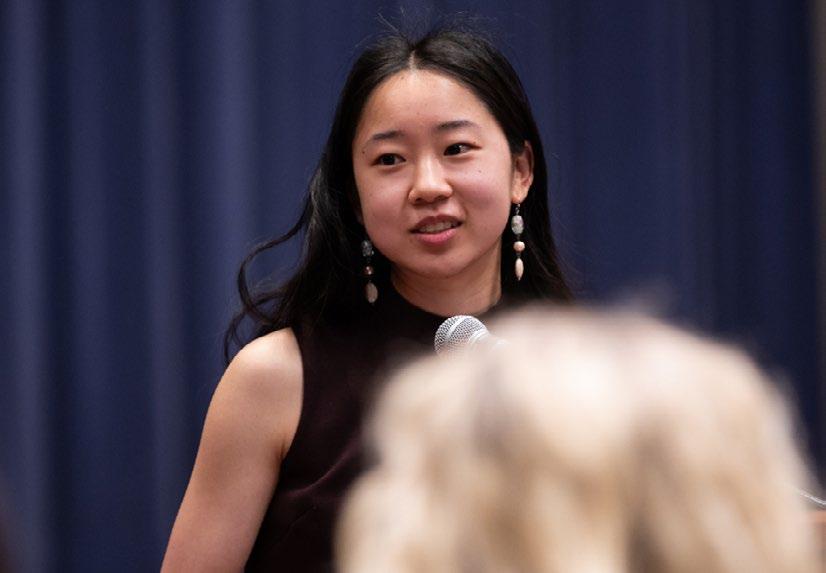





Meredith Huang ’23 won the 2023 Brian M. Sax Prize for Excellence in Clinical Advocacy for her outstanding work in the Policy Advocacy Clinic (PAC) and the Death Penalty Clinic (DPC). At PAC, she drafted and advocated for a bill eliminating juvenile fees and fines in Utah that passed unanimously out of the state senate, plus drafted fees and fines policies on track to be adopted by youth defender and district attorney’s offices. At DPC, she worked at the intersection of state and federal habeas law, including preparing for an evidentiary hearing and supporting investigation for clemency proceedings.

Maya Fegan ’23 won the Sax Prize Honorable Mention for her excellent work in the East Bay Community Law Center’s Health and Welfare Clinic, where she handled wide-ranging cases on behalf of adults and children with disabilities in areas such as housing, Supplemental Security Income, Cash Assistance Program for Immigrants, and In-Home Supportive Services. Fegan, who also participated in EBCLC’s Clean Slate Clinic, quickly became the clinic’s go-to person for cases involving clients facing mental health and cognitive challenges, and took on cases involving novel legal issues.

“I feel so lucky to have been a part of this joyful public-interest community, one that takes care of each other and celebrates small wins, while understanding the context: We only have work to do because cruel and unequal systems exist.”
“My conversations with clinic staff and peers about law, poverty, professional ethics, and everything in between have profoundly shaped how I think about my role as a future legal aid attorney and my relationship to our clients.”Photos by Lonny Meyer
Founded in 2001, the Death Penalty Clinic seeks justice for individuals facing the death penalty by providing them with highquality representation and offers students a rich opportunity for meaningful hands-on experience in high-stakes, complex litigation. Students participate in field investigation, consult with experts, draft pleadings, prepare for hearings, and help shape case strategy. Through direct representation, policy advocacy, and friend-of-the-court briefs, the clinic also exposes and tackles problems endemic to the administration of the death penalty, such as racial discrimination, prosecutorial misconduct, ineffective assistance of counsel, and methods of execution.

Clinic students were particularly active in Alabama this year, working on behalf of three of the clinic’s clients in the only state that does not provide postconviction representation to death row prisoners who cannot afford lawyers. Students and clinic faculty traveled to Alabama, among other places, multiple times. They visited clients at Holman Correctional Facility, participated in a community gathering of faith leaders to raise awareness about one of the clinic’s clients, and recorded family members and former correctional officers for a video in support of clemency.
Back home in Berkeley, students drafted briefs and motions for courts ranging from a trial court
in northern Alabama to the U.S. Supreme Court, researched claims of race discrimination under California’s new Racial Justice Act, and drafted a brief for an Arizona client’s claim of intellectual disability. Students also continued the clinic’s research and advocacy in support of more diverse juries by drafting a forthcoming report, “Guess Who’s

to
Data Contributes to Whitewashing the Jury Box,” which catalogs the varying ways states collect the race and ethnicity data of prospective jurors and makes recommendations for best practices. Read more news >

Death Penalty Clinic students Dan Hilborn ’23, Myka Yamasaki ’23, and Paulina Montez ’23 (left
work on a video requesting clemency for a longtime client facing execution — a new strategy for the clinic.
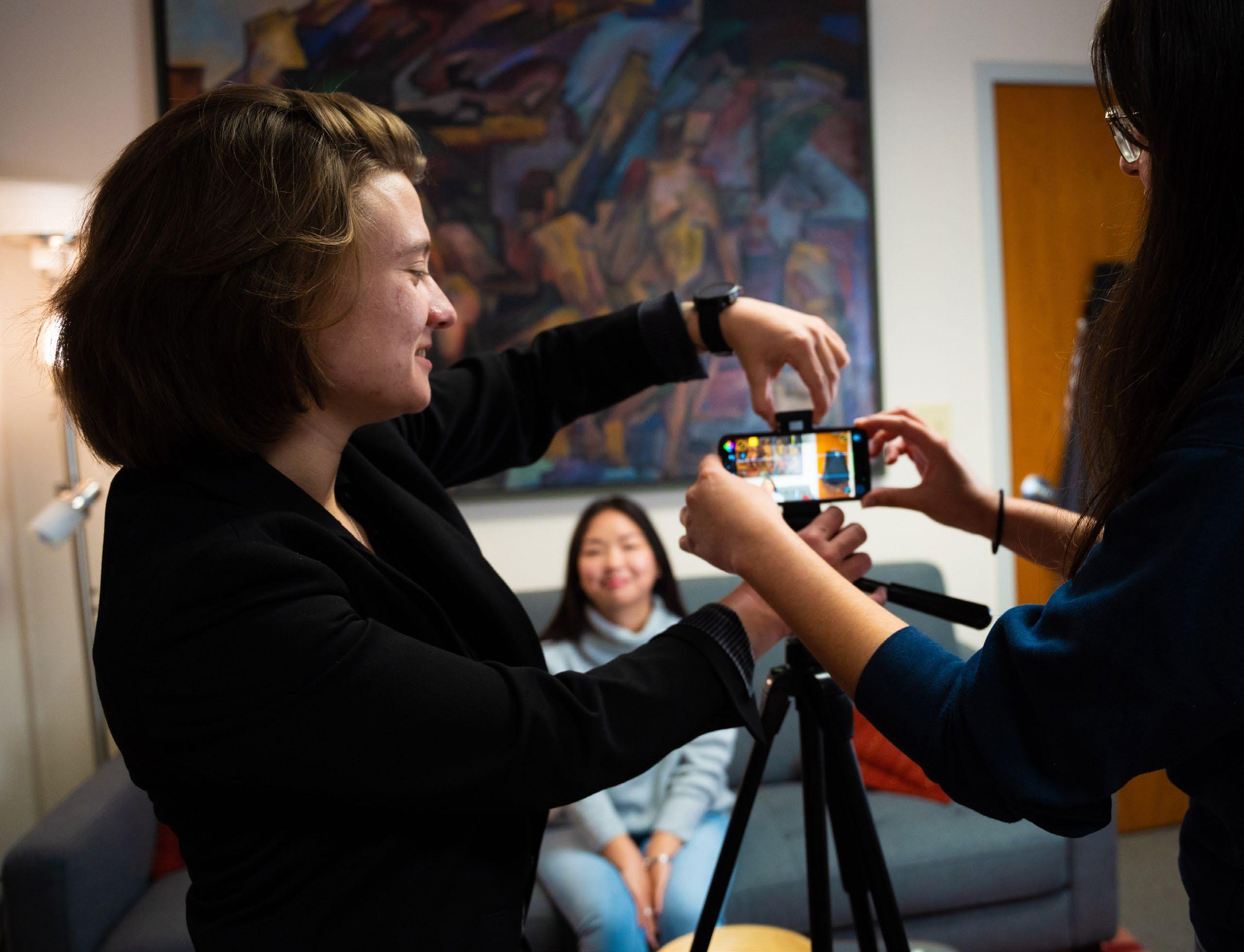 to right)
to right)

The Environmental Law Clinic tackles critical environmental justice and health issues, while providing students with hands-on experience representing live clients. Our tools include litigation, agency practice, legislative drafting, and policy analysis. Clinic projects reduce human exposure to pollution, toxic chemicals, and radiation; promote racial and economic equity in environmental policy; and increase access to nature for all. The clinic aims to make students creative, effective, culturally competent lawyers; to make an environmental difference; and to address unmet legal needs.
Recent News
Clinic students undertook multiple projects this year to advance environmental justice for California Native Nations. These included a project to help a Tribe gain jurisdiction over water quality regulation on its reservation and adjacent lands; a project to help another Tribe negotiate for preferential access to culturally significant sites on state-managed land; and a project to help a third Tribe gain federal recognition as such from the U.S. Department of the Interior, and thereby obtain the right of consultation under various environmental statutes.
The clinic also represented the nonprofit Amazon Watch in examining how many corporate filings with the Securities and Exchange Commission misrepresent oil and gas extraction, mining, and
dredging projects that severely impact Indigenous communities. Clinic students recently presented their work to commission staff, and will transmit their research to the agency with a request that it investigate and sanction offending companies for misleading investors about the environmental and human rights implications of their operations.
The clinic additionally represented nonprofit groups battling noxious environmental releases from industrial facilities nationwide, ranging from air pollution emitted by a foundry in East Oakland to water pollution from a nuclear reactor on Lake Erie to toxic air emissions and effluent releases from a chemical manufacturing plant in North Carolina. Read more news >
Law Clinic students visit a North Carolina water treatment plant with client Emily Donovan (far left), co-founder of Clean Cape Fear, which fights for clean drinking water. The group and the clinic filed a complaint with the United Nations, alleging that chemical companies DuPont and Chemours discharged toxic PFAS chemicals into the Cape Fear River for decades. Also pictured left to right: Linda Gordon ’24, water resources manager Glenn Walker, Noah Lesko-Kanowitz ’24, Julia Herrmann ’24, and Ellen Kamps M.P.A.




 Sabrina Ashjian Supervising Attorney
Steve Castleman Supervising Attorney
Antonette Cordero Supervising Attorney
Environmental
’23.
Nazune Menka Supervising Attorney
Photo by Claudia Polsky
Sabrina Ashjian Supervising Attorney
Steve Castleman Supervising Attorney
Antonette Cordero Supervising Attorney
Environmental
’23.
Nazune Menka Supervising Attorney
Photo by Claudia Polsky

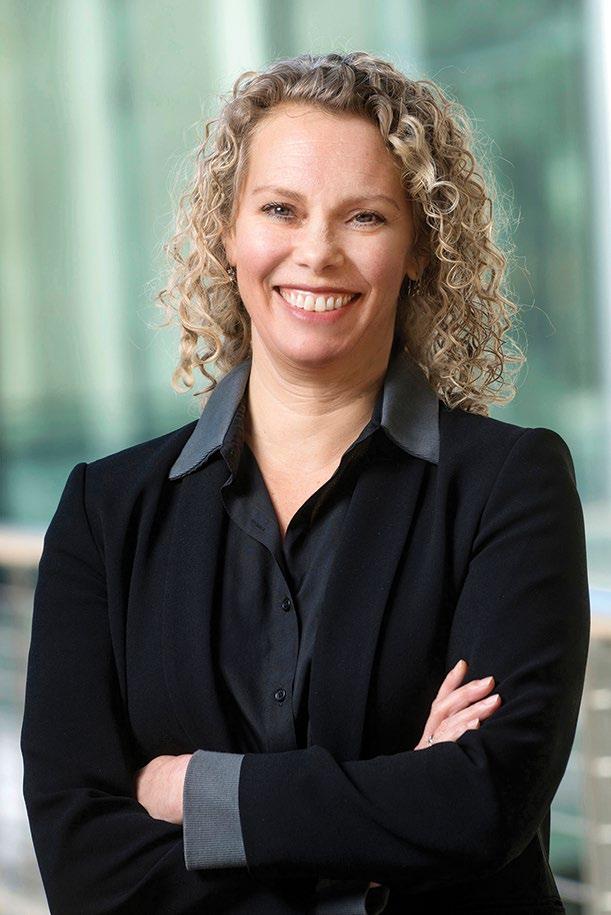

The International Human Rights Law Clinic advances human rights at home and abroad through litigation, documentation, evidencebased policy work, and client-centered advocacy on a range of cases and urgent issues. One of the oldest human rights clinics in the country, the clinic has pioneered a multidisciplinary, collaborative approach to its work. Students hold perpetrators of mass violence accountable in international and domestic courts, fight for justice for migrants at the border and immigrants in our community, and protect human rights defenders under threat from authoritarian regimes.
On April 28, 2023, a clinic team filed a petition with U.N. Special Procedures on behalf of family members of four imprisoned human rights activists in Vietnam, a country under one-party rule with a history of repressing dissent. International pressure is the only option for the activists to gain relief. An independent journalist and leaders of human rights groups are among the four, all targeted with criminal sanctions for criticizing the government. These independent experts can open an official inquiry about individual cases to the government. The petition urges the U.N. experts to request release of the activists.
On November 4, 2022, the Inter-American Commission on Human Rights heard arguments and testimony in a landmark case about systemic abuse and impunity in the nation’s largest law enforcement agency, U.S. Customs and Border Protection. Family Members of Anastasio
Hernandez Rojas vs. United States is the first case involving an extrajudicial killing by U.S. law enforcement to be examined by an international human rights body. The Hernandez family has asked the United States to reopen the investigation and ensure the nation’s use-of-force policies comply with international human rights law. Read more news >
An International Human Rights Law Clinic team, led by Supervising Attorney Tayyiba Bajwa, travelled to Nairobi, Kenya, last spring to meet with the clinic’s client Haki na Sheria Initiative and their partners who are advocating for a human rights compliant introduction of digital identification. Their work is key to ensuring ethnic and religious minorities are not excluded from accessing digital identification when it is rolled out.





The New Business Community Law Clinic provides free legal assistance to businesses that cannot afford legal help during the critical early years. By helping entrepreneurs, clinic students gain important experience in counseling business clients and applying transactional law in a variety of areas, including entity formation, raising capital, employment law, risk management, intellectual property protection, and regulatory issues. The wide variety of legal issues gives students important experience serving as in-house counsel for these businesses. The clinic provides free legal representation, walk-in office hours, trainings, and online resources throughout the East Bay and Central Valley.
Recent News
Clinic students counseled more than 450 lowincome small businesses in the Bay Area and Central Valley — of which 80% are led by entrepreneurs of color and 50% come from immigrant communities. The clinic also expanded its community partnerships, collaborating for the first time with Black chambers of commerce in Fresno, Oakland, and San Francisco to offer members the legal resources they need to succeed. Our new partner Central Valley Immigrant Integration Collaborative will also help expand the clinic’s reach to immigrant entrepreneurs, who benefit from the clinic’s ability to offer services in English and Spanish. Another new alliance with UC
Berkeley’s Undocumented Students Program will help students create limited liability companies and support themselves as independent contractors.


This year the clinic expanded training for students in intellectual property issues, including intensive one-on-one coaching on the U.S. Patent and Trademark Office clearance and application process. Three out of four clinic clients ask for legal advice about intellectual property issues, particularly with trademarks. Read more news >
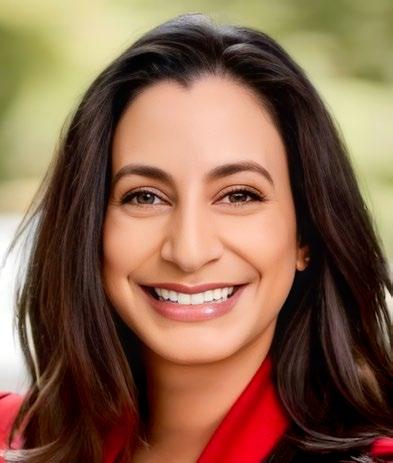
Michelle Wong ’23 and Christine Ko ’24 (far left and second from left) confer with KaSelah Crockett, founder of nonprofit Compass & Keys (in hat), and clinic Director William Kell (far right) about how to support the organization’s monthly San Francisco pop-up event offering health and economic resources to Black and underserved communities. The clinic advised the nonprofit on partner agreements and regulatory matters.

The Policy Advocacy Clinic is the nation’s premier interdisciplinary clinic where law and public policy students team up to take on systemic racial and economic injustice. The clinic’s approach is ground-up (rooted in the lives of impacted people), problembased (addressing pressing social issues), and community-driven (accountable to local organizations). Students support state and national reform campaigns in the juvenile and criminal legal systems while exploring the potential and limits of law and public policy to solve real-world problems.

The clinic continued to shed light on systemic harm in the criminal and juvenile legal systems and to support successful reform efforts at the local, state, and national level. Locally, the clinic assisted the Urban Peace Movement on a project addressing prosecutor accountability and violence prevention in Oakland. In California, the clinic co-authored “Coming Up Short” with the UCLA Law Bail Practicum, detailing how a California Supreme Court ruling with the promise of reforming pretrial detention was having little effect in courtrooms across the state, and represented Debt Free Justice California in passing multiple reform bills in the adult and juvenile settings.

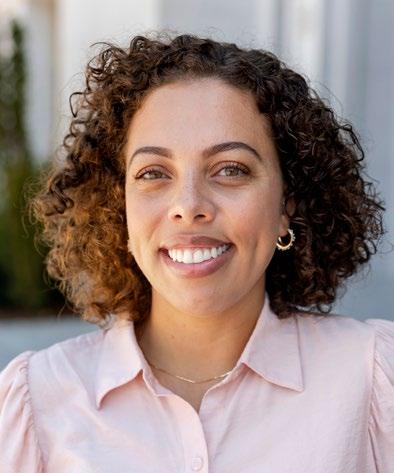
Nationally, as part of the Debt Free Justice campaign, staff and students supported successful bills to abolish juvenile fees and fines in Arizona, Illinois, Montana, Texas, and Washington. In response to the clinic’s call signed by 180 groups across the country and political spectrum, the U.S. Department of Justice recently issued a “Dear Colleague” letter encouraging states and localities to eliminate fees and fines imposed on youth in the juvenile legal system. Read more news >

Deja Little M.P.P. ’23, a student on the Policy Advocacy Clinic’s Illinois juvenile fees team, reports on her small group’s discussion after an exercise about policy reform and abolition in the weekly seminar class.

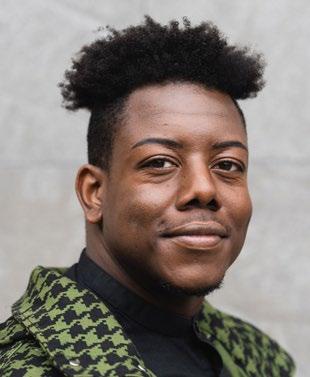




 Anavictoria Avila Clinical Supervisor
Gus Patel-Tupper Clinical Supervisor
Georgia Valentine Policy Research
Fellow
Delaney Green Clinical Supervisor
Cameron D. Clark Clinical Supervisor
Maiya Zwerling Clinical Supervisor
Photo by Brittany Hosea-Small
Anavictoria Avila Clinical Supervisor
Gus Patel-Tupper Clinical Supervisor
Georgia Valentine Policy Research
Fellow
Delaney Green Clinical Supervisor
Cameron D. Clark Clinical Supervisor
Maiya Zwerling Clinical Supervisor
Photo by Brittany Hosea-Small



The Samuelson Law, Technology & Public Policy Clinic trains the next generation of lawyers to advance the public interest in a digital age marked by rapid technological change. The clinic’s work focuses on three main areas: protecting civil liberties, promoting balanced intellectual property laws and access to information policies, and ensuring a fair criminal justice system. The clinic does this through strategic litigation opportunities, regulatory and legislative processes, and policy analysis.
Clinic students assisted the Lawyers Committee for Civil Rights Under Law in researching, preparing, and filing an extensive comment in the Federal Trade Commission’s Commercial Surveillance proceeding. The comment provided evidence of how targeted advertising and automated decision-making systems have led to discriminatory outcomes in violation of federal laws protecting civil rights. It also identified models for specific regulations to address discriminatory harms based on state and federal laws, and on the European Union’s General Data Protection Regulation.
The clinic assisted KALW Public Media with copyright licensing issues related to the distribution of the Uncuffed Podcast, which is written and produced by and for incarcerated people in California correctional facilities. Clinic students also helped KALW navigate copyright issues related to a separate Uncuffed DJ Program, which trains incarcerated people to produce a music program for radio broadcast. Thanks in part to the clinic’s involvement, the Uncuffed Playlist, California’s first radio program hosted by incarcerated people and broadcast to the general public, is now airing. Read more news >
Samuelson Law, Technology & Public Policy Clinic students Blair


Jean
meet with their client Nitin Kohli, a postdoctoral student at the UC Berkeley Center for Effective Global Action, to discuss technological deficiencies of facial recognition and other surveillance technologies.

 Matsuura ’24 (left) and
Larsen ’23 (middle)
Photo by Darius Riley
Megan Graham Supervising Attorney
Brianna Schofield Supervising Attorney
Areeba Jibril Teaching Fellow
Matsuura ’24 (left) and
Larsen ’23 (middle)
Photo by Darius Riley
Megan Graham Supervising Attorney
Brianna Schofield Supervising Attorney
Areeba Jibril Teaching Fellow
The Clean Slate Clinic provides legal services at the intersection of criminal, employment, and consumer law, representing clients on post-conviction record-sealing petitions in criminal court and engaging in local and statewide criminal justice reform, particularly as it relates to court debt and the criminalization of homelessness. Law students file petitions in criminal court, conduct intake at weekly courthouse clinics, write declarations and briefs, and represent clients in administrative hearings and municipal court.
Jael Myrick Director
Maureen Kildee Supervising
AttorneySabyl Landrum Supervising Attorney
Brigitte Nicoletti
Supervising Attorney
Jay Kim Co-Deputy Director


The East Bay Community Law Center houses Berkeley Law’s eight communitybased clinics, which serve thousands of clients annually in the surrounding community. For more than three decades, Berkeley Law students have advanced vital legal support and policy advocacy at EBCLC — Alameda County’s largest provider of free legal services. The center teaches critical, practical, and hands-on lawyering skills, while fighting for justice and reflecting on the lawyer’s role and the lawyering process.
Rebecca Oyama Supervising Attorney




The Community Economic Justice Clinic uses corporate law to provide technical assistance to organizers in building community resources such as land trusts, cooperatives, and credit unions. Students engage in “movement lawyering” strategies, including community legal workshops, client counseling, and direct representation to advance peopleoriented economic development and empower low-income communities of color to build long-term solutions to poverty.
Candy Smallwood Director


Jevon Potts Harrison
Supervising AttorneyMichael Trujillo Supervising Attorney

The Consumer Justice Clinic provides assistance and representation to low-income Alameda County residents on a variety of consumer issues, including debt-collection defense, student loans, car fraud, predatory lending, and consumer scams. Students engage in a full range of litigation practice, including drafting motions, representing clients in court, and negotiating settlements. Students also support the clinic’s pursuit of state policy initiatives that address the most significant challenges faced by low-income consumers.
Desirée Nguyen Orth

 Director
Kara
Director
Kara
Acevedo
Supervising AttorneyMiguel Soto
 Supervising Attorney
Supervising Attorney
Sophia Wang
Supervising AttorneyThe Education Justice Clinic and the Youth Defender Clinic work together to fight back against the criminalization of youth of color, so that they can thrive in their communities and get the education they deserve. The clinics collaborate to provide holistic representation to youth in the juvenile justice system. Law students represent clients in juvenile court, special education (IEP) proceedings, and at expulsion hearings. Students also participate in the clinics’ policy advocacy, which includes supporting local and statewide campaigns to curb the education system’s overreliance on police in public schools and challenging the use of electronic surveillance (GPS) with youth.
AtasiUppal
Co-DirectorCancion SotoRosen
Co-Director
Ellen Ivens-Duran Supervising Attorney


Whitney Rubenstein

Supervising Attorney, Director of Social Work
Adrienne Spiegel

Supervising Attorney
Gloria Yi


Supervising Attorney
The Health and Welfare Clinic provides critical legal services to individuals at risk of poor health outcomes due to poverty, unsafe housing conditions, homelessness, and/or inadequate health coverage. Through medical-legal partnerships with local providers, law students work to provide stability for their clients. Students represent clients at administrative hearings involving the denial of disability-related benefits and provide limited-scope representation regarding public benefits issues.
Milo Manopoulos Beitman Interim Director
Sun Young Lee
Supervising Attorney



The Housing Clinic is a high-volume litigation practice designed to protect and promote safe, healthy, and affordable housing for low-income tenants through eviction defense and affirmative litigation to compel landlords to maintain their rental properties in a habitable condition. Students engage in a full range of litigation procedures while representing tenants in civil eviction proceedings and in administrative matters under local rent control ordinances.
Meghan Gordon


Co-Director
Linda Yu
Co-Director
Laura Bixby
Supervising Attorney
Hannah Flanery
Supervising Attorney
Maria Guerra
Supervising Attorney
Marc Janowitz

Supervising Attorney
The Immigration Law Clinic provides legal services to low-income individuals focusing on the most vulnerable populations — people with disabilities and chronic illness, members of the LGBTQ+ community, and youth. The clinic has formal school-based partnerships providing legal services to immigrant students in the Oakland Unified School District, community colleges, and UC Berkeley. The clinic prioritizes cases involving criminal issues and deportation defense. Students carry their own client caseload and experience the full range of client representation through assessing legal relief in initial consultations and providing direct legal representation in immigration court and before other government tribunals.

Theo Cuison
Co-Director
Mindy Phillips


Co-Director

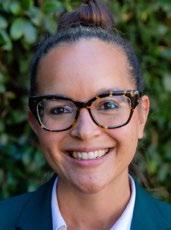
Karla Cruz
Supervising Attorney
Daisy O. Felt
Supervising Attorney
Melissa Phatharanavik
Supervising Attorney
Abigail Rich
Supervising Attorney
The East Bay Community Law Center trains over 120 law students each year through its community-based clinical program. As a women of color–led organization, EBCLC affirms that uplifting Black and brown women, who serve as the organization’s primary clientele, will lead to more thriving, healthy, and dignified communities. EBCLC will continue to center women of color, and the resilient communities that they sustain.
• Education Justice Clinic Director Atasi Uppal co-authored “Decoding Alternative Education” with the ACLU of Southern California and the National Center for Youth Law. This report aims to inform families and advocates as the clinic demands more transparency for youth in county-run alternative schools.
• The Consumer Justice Clinic co-sponsored Senate Bill 633 , which requires businesses to offer translated documents to anyone cosigning a consumer credit transaction. The bill gives better consumer protection to California’s large number of residents whose first language is not English. Governor Gavin Newsom signed the bill in August 2022.
• EBCLC advocated to expand Deferred Action for Childhood Arrivals, relief, and freedom for all undocumented community members. Despite judicial attacks on DACA, the Immigration Clinic continues to provide legal consultation and renewals of DACA applications through its kindergarten-to-college, school-based immigration clinics.
• The Clean Slate Clinic advocated for four years for Assembly Bill 1720, which removed barriers from the criminal background check process for people applying to work at care facilities.
• The Housing and Community Economic Justice clinics prepared for a wave of clients following Alameda County’s lifting of the state of emergency and end of COVID-era eviction moratorium. Along with legal aid and tenant rights education, EBCLC bolstered its support of legislative solutions to keep tenants housed, including the Tenants Opportunity to Purchase Act, an anti-displacement housing policy to preserve affordable housing in Berkeley.
• The Health & Welfare Clinic supervised nine Name and Gender Change Workshops in collaboration with Berkeley Law students over the past academic year.
• EBCLC hosted a Juneteenth Block Party in partnership with Berkeley Juneteenth Festival as part of “Juneteenth Week: Remembering the Hope and Promise of Emancipation.” The celebration hosted free legal information and resources including eviction defense, immigration relief, and consumer protection. The Clean Slate and Education Defense and Youth Justice teams also hosted know-your-rights workshops.
Read more news >
 East Bay Community Law Center Executive Director Zoë Polk (far right) welcomes law students at orientation.
East Bay Community Law Center Executive Director Zoë Polk (far right) welcomes law students at orientation.


University of California, Berkeley
University of California, Berkeley
School of Law
353 Law Building Berkeley, CA 94720-7200
510.643.4800
Connect with us
clinicalprogram@law.berkeley.edu
law.berkeley.edu/experiential/clinics/
Follow us on Instagram
@BerkeleyLawClinics
On the cover:
Clockwise from top left: Environmental Law Clinic students Dalton Valerio ’24 and Michael Greif ’24 meet in the Clinical Program space; Environmental Law Clinic student Ami Shirriff ’24; (left to right) Mariam Jamal from the Haki na Sheria Initiative walks with International Human Rights Law Clinic team Amina Fahmy ’23, Supervising Attorney Tayyiba Bajwa, and Nicole Waddick ’23 in Nairobi, Kenya; Policy Advocacy Clinic Clinical Supervisor Maiya Zwerling and students Greta Sloan ’24 and Julie Gomez from Arkansas Justice Reform Coalition approach the state capitol in Little Rock, Arkansas; Death Penalty Clinic students Myka Yamasaki ’23, Paulina Montez ’23, Paloma Sat-Vollhardt ’23, and Chantel Johnson ’23 confer in a team meeting.
Photos by Brittany Hosea-Small, Laurel E. Fletcher, Rachel Wallace, and Darius Riley